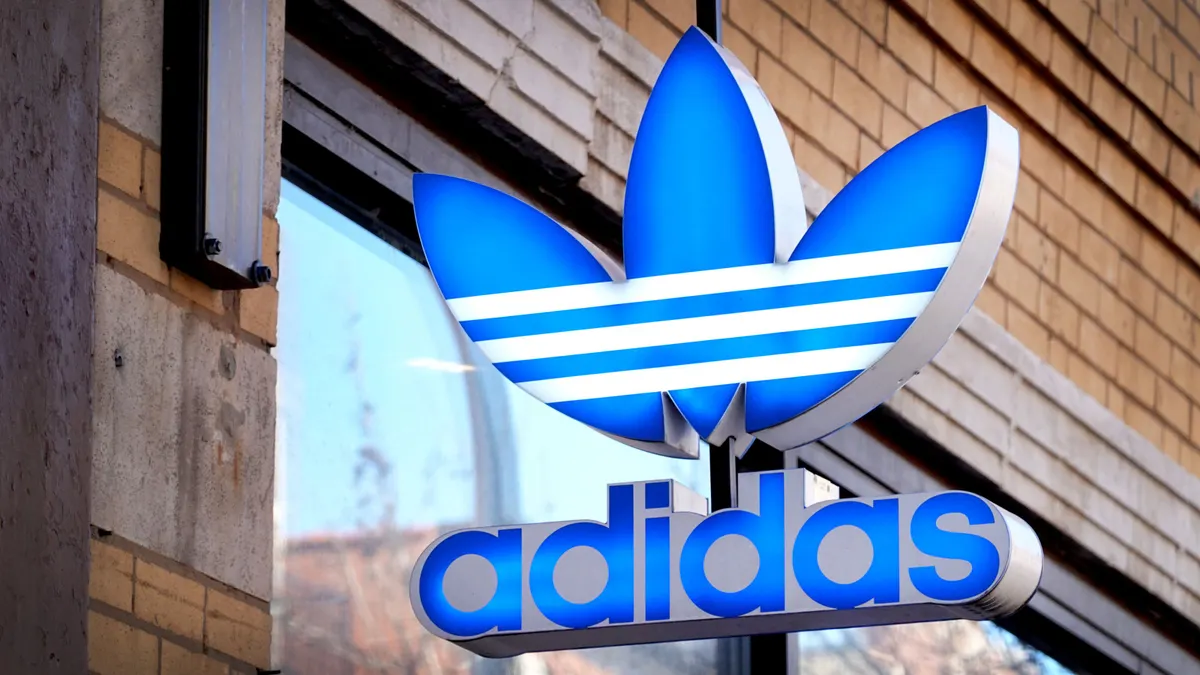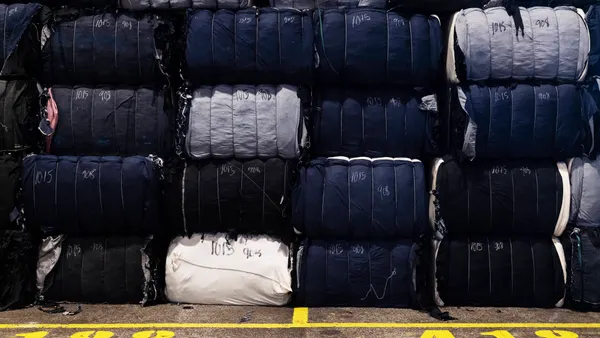Dive Brief:
- Adidas has stopped its use of kangaroo skin, according to a Thursday press release from the Center for a Humane Economy.
- The athleticwear company stopped buying kangaroo leather in 2024 and will end production of products containing the material “within 2025,” a spokesperson said in an email.
- Adidas joins athleticwear companies including Puma, Diadora, Sokito, Nike and New Balance in ending the use of kangaroo leather, which has historically been a component of high-end soccer cleats.
Dive Insight:
Adidas’ announcement came in response to an in-person petition last week from Wayne Pacelle, president of the Center for a Humane Economy and Animal Wellness Action. Pacelle traveled to Fürth, Germany, to attend the company’s annual general meeting and ask the athleticwear giant to end its use of kangaroo skins, which have been used to make footwear such as the company’s Copa Mundial soccer cleats.
“The mass killing of kangaroos has been driven by exports mainly for kangaroo skins,” Pacelle said in the release. “With Adidas exiting the trade, we have shut down sourcing of skins by the world’s top five athletic shoe brands.”
Pacelle added that his organization now plans to intensify its efforts to “end this trade once and for all” by securing similar pledges from athleticwear brands ASICS and Mizuno.
Jennifer Skiff, director of international programs at the Center for a Humane Economy, said the pledge from Adidas was important from both an ethical and commercial perspective.
“Adidas’ decision marks a historic milestone in animal protection and corporate responsibility,” Skiff said in the release. “This sends a clear message: compassion is not a compromise. Cruelty has no place in commerce.”
Last year, a bill intended to ban the use of kangaroo leather was introduced in the U.S. Senate. That bill died in committee and has not been introduced for the 2025 legislative session.
However, a new bill, called the Kangaroo Protection Act of 2025, was introduced by U.S. Rep. Brian K. Fitzpatrick, R-Pa., in March. That bill seeks to ban commercial imports, sales and manufacturing of kangaroo products in the U.S. The country. “has the world’s largest economy [for kangaroo products] by a long-shot, and the vast majority of trade in kangaroo parts in Australia is conducted for export,” according to the Center for a Humane Economy and Animal Wellness Action.
The Adidas news was applauded by Emma Hurst, who is a member of Parliament representing the state of New South Wales in Australia and a member of the country’s Animal Justice Party.
“Adidas joining its competitors in ending the use of kangaroo leather is not only a win for animals — it’s a win for transparency, ethics, and global consumer expectations,” Hurst said in the release.
While Pacelle called Adidas’ decision to exit the kangaroo skin market “thrilling news,” his organization is still tracking multiple fashion companies that continue to use the material, including Athleta, L.L. Bean and Lucchese.











